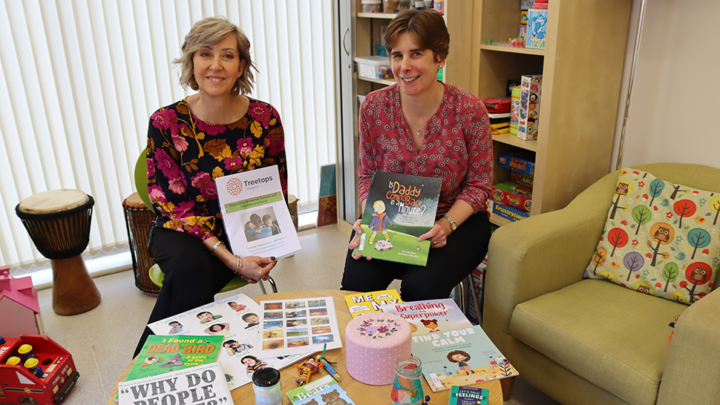We offer bereavement training for primary schools across Derbyshire and Nottinghamshire. The training helps teachers and school staff to better understand how 5 to 11 year olds comprehend death, how to recognise common reactions to a death, and how to support children when they are bereaved.
All children respond to, and understand death, in their own unique way. Jules Kirk, our Therapeutic Services Manager and Head of Children’s Services explained more:
How a child deals with grief
“How a child experiences grief depends on many factors, not just their age. Their reactions can be affected by what’s happening in society and what is seen in the media. Other factors include their cognitive ability, emotional literacy, wider family, their culture, and beliefs.

“In our training, we explain what children believe about death at different ages. Younger children have a limited concept of time, for example. So they often view death as a temporary absence of that loved one. Older children understand that death is irreversible. But they sometimes believe that the person who died can still see or hear them.
We’re upskilling school staff to recognise these reactions in their pupils and give them the skills and confidence to help children in a safe and age-appropriate way.
National Association of Funeral Directors President John Adams is leading a campaign to add bereavement to the national curriculum. He would like schools to provide age-appropriate education to help children understand death as a part of life and to prepare children in case the worst happens.
Supporting children after a bereavement
The Lanes School in Beeston, Nottinghamshire was one of the first schools to receive the training. Elaine Allcoat, leading teaching assistant explained why it is invaluable:
Supporting pupils after any trauma including bereavement is a vital part of our job. We don’t want to ‘get it wrong’ because it is so important. The training really gave us confidence and guided us in how to tackle these difficult situations.
“The Treetops staff helped make talking about a difficult subject easier to cope with and the whole session was interactive and felt personal. We’d recommend other schools take up this opportunity.”
We initially developed the training as a frontline response to the COVID-19 pandemic. We recognised how difficult this period was on the younger generation. Not having family and friends around, and being unable to say goodbye at funerals, all had a detrimental effect on how young people coped after the death of a loved one.
